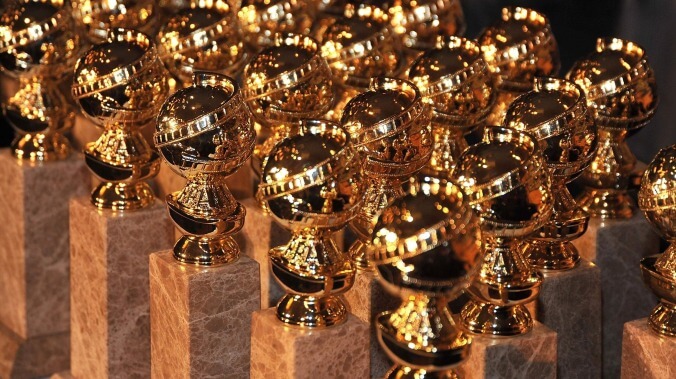Those beautiful Golden Globes Photo: Frazer Harrison
Since 1944, the Golden Globes have galivanted around American show business like the dumb Oscars. Under the stewardship of the quasi-mysterious, bribe-ready Hollywood Foreign Press Association, The Globes regularly courted controversy and stumbled towards its televised ceremonies, where stars get drunk and roasted. For decades the HFPA ran roughshod over any assumed legitimacy, until the organization disintegrated into nothingness and relinquished the Globes due to the fallout from the organization’s refusal to let a single Black person into its voting body. Not that anyone really cared. The Golden Globes have always been the Oscars’ aggressive, intoxicated, and uncontrollable little cousin. And despite its radioactive energy, Hollywood studios have rarely shied away from the allure of another award.
There was a moment when it looked like the Globes were over. In 2021, around the time studios were paying lip service to the idea that they too could hire non-white job candidates, the likes of Tom Cruise were handing their Golden Globes back, announcing to the world that the lack of Black representation in the organization was a non-starter. Amazon, Netflix, and WarnerMedia pulled out of the Globes, and the organization promised “transformational change.” The following year, Penske Media, the owner of Deadline, Variety, The Hollywood Reporter, and other entertainment industry outlets, assumed control of the show and returned the Globes to their rightful place as the season’s number two awards show.
Hollywood always comes back to the Globes. Whether studios are feigning outrage over the kind discrimination that they too engage in, or the Globes’ governing body becomes embroiled in a payola scandal, studios find too much value in putting “Golden Globe Winner” at the top of a movie poster. In 2013, a Golden Globe win was found to be more valuable than an Oscar, with a Globe victory amounting to a $14.2 million box office boost.
No matter how much the Golden Globes embarrasses voters and recipients, the value of a name-brand award that people recognize as having nominal importance is priceless. Three years after the controversy that cratered the organization, the words “Golden Globes Nominee” can easily be found at the top of For Your Consideration posters. Despite the well-documented history of corruption and controversy, those words mean too much to a movie’s marketing and audience awareness. Simply by existing, the Golden Globes signal to audiences that movie awards season has begun, alerting viewers to a short list of films that will likely earn Oscar nominations. In a way, the Golden Globes are free advertising for the Academy Awards.
There are only so many Oscars, and many of the movies that the Globes nominate, such as The Tourist or Sia’s Music, would never get within an inch of the Academy Awards. The Globes opens the door to those oddball, celebrity passion projects and star vehicles that promise famous attendees at the ceremony. Of course, in the past that spread opened the HFPA to scandal. Studios and stars were often accused of wining, dining, and basically bribing the HFPA to get a film nominated. Nevertheless, the Golden Globes pressed on.
It doesn’t matter what the Globes do, though, because their value to the broader system offers no downside to Hollywood. The Globes can withstand any controversy, infraction, or discrediting simply by moving on. It’s a brand so inherently toxic but also so invaluable that no one will just let them die. By virtue of being an awards ceremony that has been televised since the 1960s, the Golden Globes will always have some meaning to studios. Whether their film is an Oscar hopeful or Burlesque, there’s a path to awards gold. And until the Nickelodeon Kids Choice Awards levels up, the Golden Globes will remain a fixture of awards season, whether anyone respects it or not.

